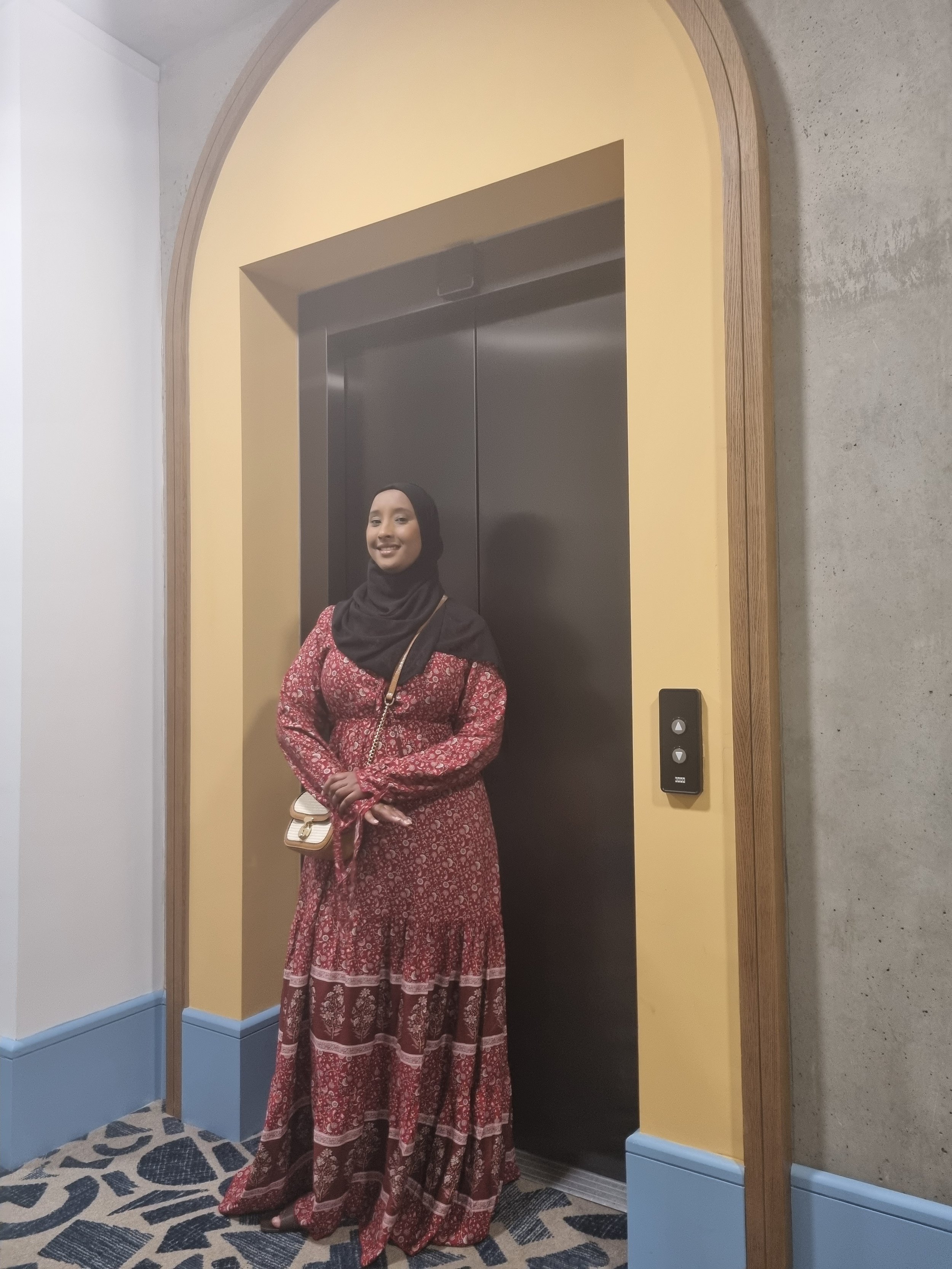Finding Joy During Infertility
I AM AFRICAN & I CAN is a women’s empowerment blog highlighting stories of Black women’s struggles and successes.
By Hadiatou Wann | 06/02/23
Born in Somalia, Farah Dualeh lived a simple nomadic lifestyle in her native country, where she and her family moved around with camels and followed the rain year-round.
Although her mother passed away when she was an adolescent, she couldn’t fully grieve her death until she was a teenager. From the age of eight to seventeen, Farah lived with extended family in the United Kingdom. Fearing that she might not have her immediate family to fall back on, at a young age she learned to be independent.
At the age of 17, she moved out. It can be worrisome for a 17-year-old to be on their own. But Farah was a responsible teenager even without supervision. Despite growing up in a town in the UK where there weren’t many Muslims, she turned toward Islam even more after moving in on her own. The spiritual strength she built up aided her in developing the emotional strength she would later need to surmount the trials of tackling infertility.
Since getting married at 24, Farah and her husband had plans of one day expanding their family. However, when they were ready to embark on their familial journey, they bumped into roadblocks. Although they didn’t seem compatible when they first married, their values, mutual support and understanding helped them traverse the infertility journey that they have been on for over 14 years. “He stuck around, and I also stuck around. We both decided to stay,” Farah addressed their decision to prioritize their marriage and remain together through thick and thin--whether children were in the picture or not.
Since Farah began the medical process of conceiving, she has had four IVFs (In Vitro Fertilization), where during these procedures she’s had 43 eggs retrieved to be fertilized over the 4 cycles. She recalls waking up teary-eyed after having IVF, highlighting that it may have been due to the emotional turmoil a woman can feel subconsciously.
After several IVFs and not being able to conceive for so many years, she had to trust God’s plan and reminded herself that God wants what’s best for her more than she wants for herself.
Usually, IVF comes with counseling which she didn’t access, although Farah believes she would have sought therapy if she needed it. Instead, she busied herself with spirituality and striving to excel in her career and other areas of her life. “Find healing ways to break down, and not destructive ways,” she advised.
“I don’t know how people live without faith because I think life is just too hard,” Farah expressed. “If you’re somebody of faith, you can still feel sadness, worriedness, confusion. It doesn’t mean you’re lacking faith,” she added.
In many cultures infertility is not only frowned upon, but usually the woman is the one blamed for it. However, many are not aware or educated enough on the matter. Farah explained that statistics show that when it comes to infertility, 30 percent is a female’s issue and 30 percent is a male’s issue, 30 percent is combined, and ten percent is unexplained (which she and her husband were classified).
In 2022, Farah opened her heart and gave the world an unfiltered look into the journey of Infertility when she published her first book “Taking Control: A Muslim Woman’s Guide to Surviving Infertility.”
A month does not go by without women reaching out to Farah to inform her that they’ve read her book and expressing gratitude for being a voice for them. ‘I felt like you interviewed me. This is my story in these pages,’ the messages would read.
Farah’s influence on others extends beyond the pages. Her close friend Nimo Yusuf, whom she met at a networking event 7 years ago, attests: “Farah is one of the most kind-hearted, honest, and beautiful people I have ever met. She’s someone I go to for advice and also admire her resilience and outlook on life.”
The name Farah means joy, she explained. Throughout her infertility journey, Farah focused on being able to find joy and happiness in every area of her life and hopes to encourage other women to find different goals and activities they can enjoy along the way. Despite going through an emotional rollercoaster trying to conceive for over 14 years, she’s managed to always keep a smile on her face and a joyful spirit that touched others. Farah’s story is a reminder that women should not stop living just because they struggle(d) with infertility. They can build confidence, faith, acceptance, and walk out glorious.
Inside the Life of an Author
“Success is being self-sufficient, having peace in your heart, and a relationship with God.”
“A strong woman is someone that is able to allow herself to feel whatever. She feels without attaching it to weakness. She understands herself and is able to articulate it others.”
“We shouldn’t feel entitled or compare ourselves to others. The only thing we were promised by Allah is that we will be tested.”
“If you’re willing to share [your story], know that it’s needed. Ask yourself ‘why am I writing this book?’ Check your why and intentions.”
Connect with Farah:
Instagram: @farahdualeh1
LinkedIn: Farah Dualeh
Email: contact@farahdualeh.com
Purchase Farah’s book: www.amazon.com/Taking-Control-Muslim-Surviving-Infertility/
Read other success stories here: www.iamafricanandican.info/blog
Follow I Am African & I Can
on social media:
Thank you for reading! Knowledge is more valuable when you share it.
SHARE THIS POST because it can change someone's life. And SUBSCRIBE below for updates and to be informed whenever a new person is featured.





